- Browse
- Physical Therapy
Physical Therapy Courses
Physical therapy courses can help you learn anatomy, biomechanics, patient assessment, and rehabilitation techniques. You can build skills in developing treatment plans, using therapeutic modalities, and enhancing patient mobility. Many courses introduce tools such as ultrasound machines, electrical stimulation devices, and exercise equipment, that support implementing effective treatment strategies and tracking patient progress.
Popular Physical Therapy Courses and Certifications
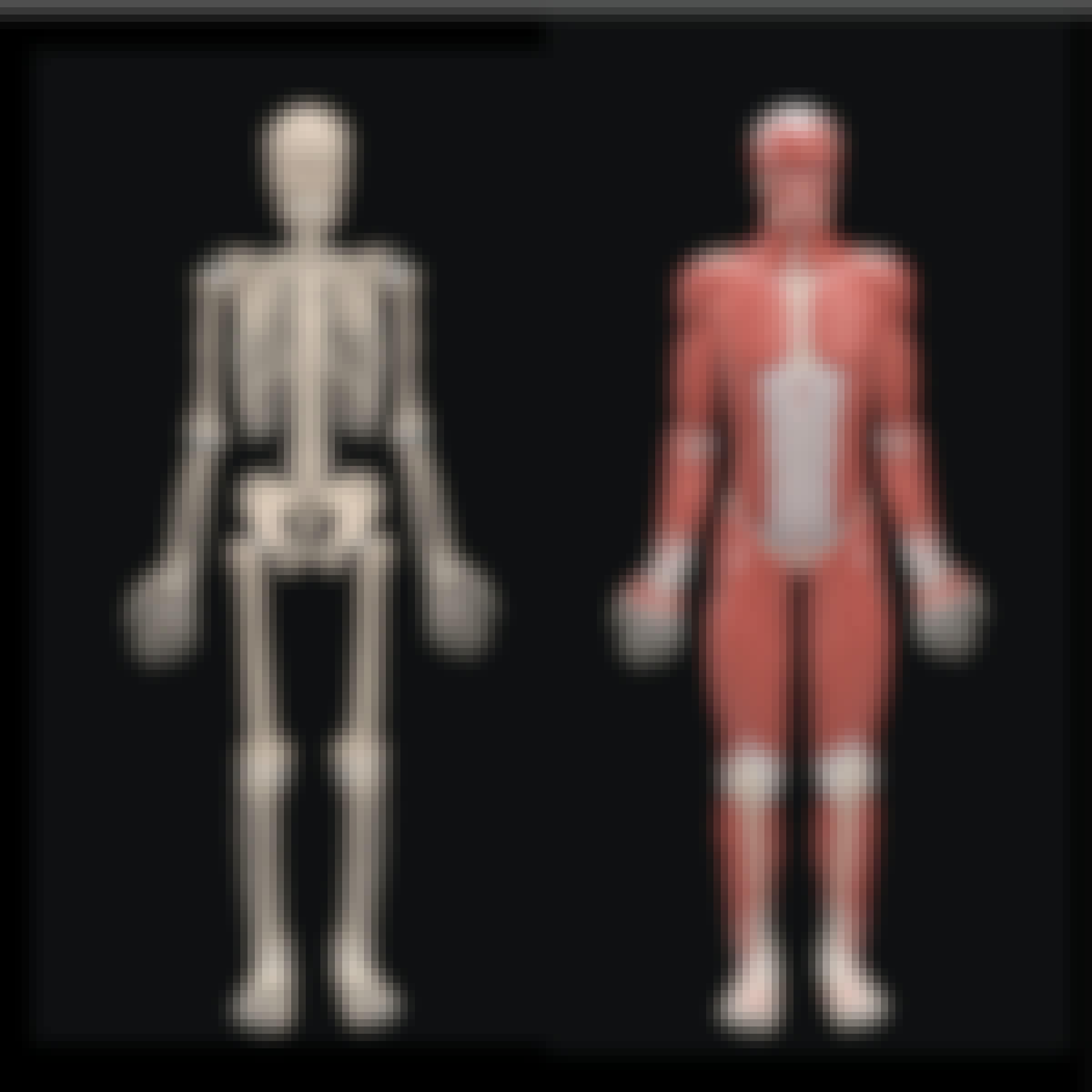 Status: PreviewPreviewT
Status: PreviewPreviewTThe Chinese University of Hong Kong
Skills you'll gain: Human Musculoskeletal System, Anatomy, Sports Medicine, Kinesiology, Orthopedics, Physical Therapy
4.5·Rating, 4.5 out of 5 stars61 reviewsBeginner · Course · 1 - 3 Months
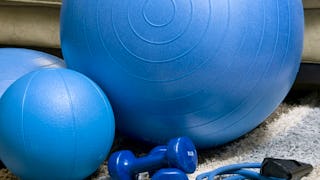 Status: PreviewPreviewU
Status: PreviewPreviewUUniversity of Toronto
Skills you'll gain: Sports Medicine, Physical Therapy, Injury Prevention, Exercise Science, Preventative Care, Health Education, Pain Management, Rehabilitation, Cardiology, Orthopedics, Oncology
4.7·Rating, 4.7 out of 5 stars805 reviewsBeginner · Course · 1 - 3 Months
 Status: NewNewStatus: Free TrialFree TrialN
Status: NewNewStatus: Free TrialFree TrialNNiel Asher Education
Skills you'll gain: Rehabilitation, Manual Therapy, Exercise Therapy, Orthopedics, Sports Medicine, Exercise Science, Physical Therapy, Kinesiology, Athletic Training, Human Musculoskeletal System, Patient Evaluation, Pain Management, Clinical Assessment, Mechanics, Anatomy, Cognitive Behavioral Therapy
Intermediate · Course · 1 - 4 Weeks
 Y
YYale University
Skills you'll gain: Human Musculoskeletal System, Anatomy, Orthopedics, Kinesiology, Patient Positioning, Neurology, Physical Therapy
4.9·Rating, 4.9 out of 5 stars104 reviewsIntermediate · Course · 1 - 3 Months
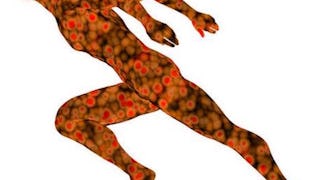 Status: PreviewPreviewU
Status: PreviewPreviewUUniversity of Colorado Boulder
Skills you'll gain: Exercise Science, Kinesiology, Physiology, Sports Medicine, Nutrition and Diet, Pharmacology, Public Health and Disease Prevention, Immunology, Preventative Care, Respiration, Athletic Training, Endocrinology, Chronic Diseases, Vital Signs, Biochemistry, Public Health, Mental Health
4.8·Rating, 4.8 out of 5 stars4.8K reviewsBeginner · Course · 1 - 4 Weeks
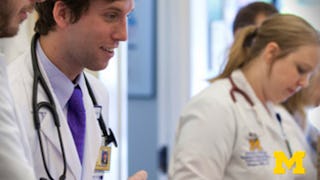 Status: FreeFreeU
Status: FreeFreeUUniversity of Michigan
Skills you'll gain: Constructive Feedback, Clinical Supervision, Clinical Assessment, Clinical Practices, Adult Education, Patient-centered Care, Trustworthiness, Empowerment
4.7·Rating, 4.7 out of 5 stars808 reviewsIntermediate · Course · 1 - 3 Months
What brings you to Coursera today?
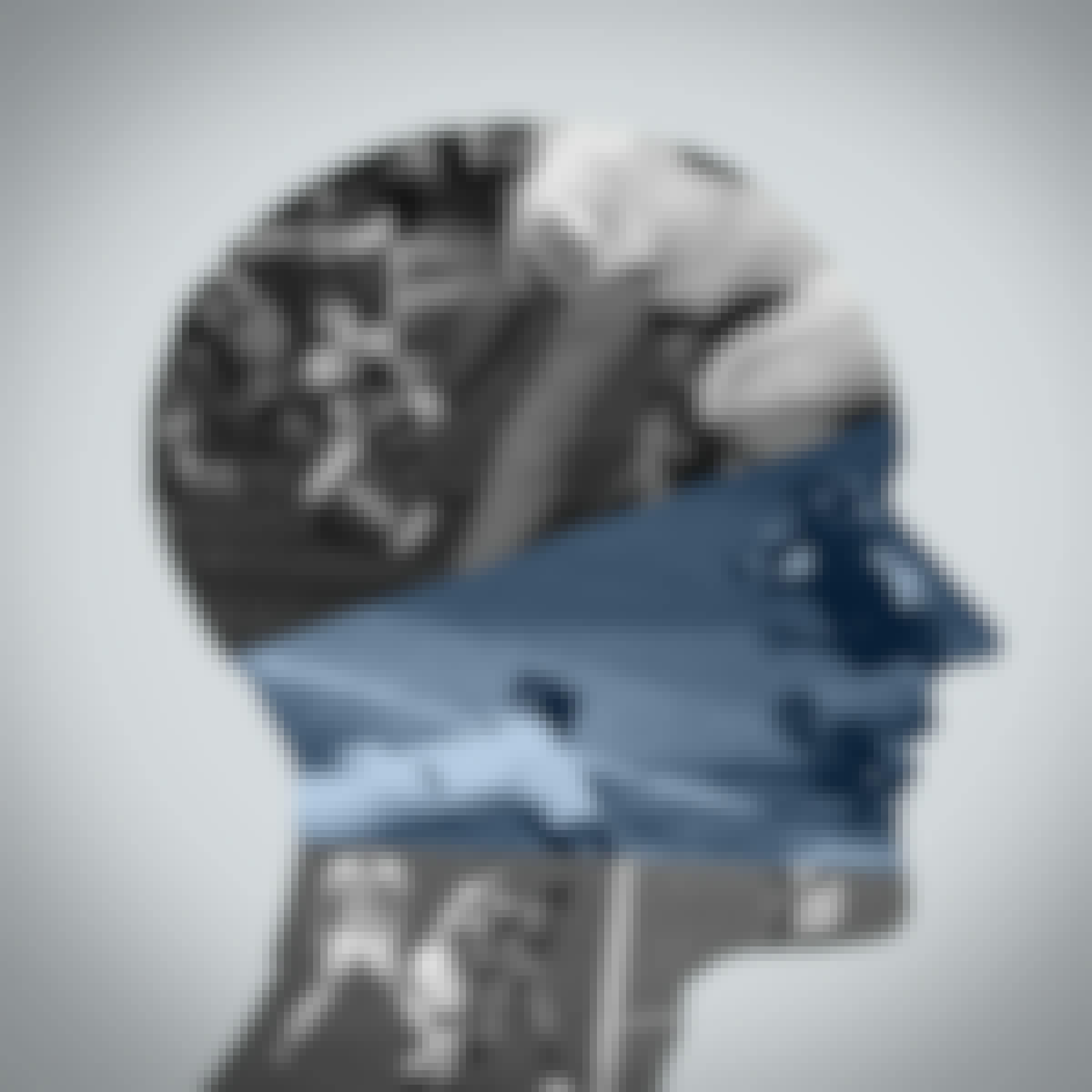 Status: FreeFreeU
Status: FreeFreeUUniversity of Michigan
Skills you'll gain: Rehabilitation, Sports Medicine, Athletic Training, Injury Prevention, Emergency Medicine, Safety Training, Neurology, School Psychology, Long Term Care, Emergency Response
4.7·Rating, 4.7 out of 5 stars1.2K reviewsBeginner · Course · 1 - 4 Weeks
 Status: NewNewStatus: Free TrialFree TrialN
Status: NewNewStatus: Free TrialFree TrialNNiel Asher Education
Skills you'll gain: Manual Therapy, Patient Evaluation, Rehabilitation, Exercise Therapy, Mobility Assistance, Orthopedics, Sports Medicine, Clinical Assessment, Physical Therapy, Exercise Science, Athletic Training, Kinesiology, Health Assessment, Human Musculoskeletal System, Pain Management, Respiration, Respiratory Therapy, Education and Training, Anatomy, Health And Wellness Coaching
Intermediate · Specialization · 1 - 3 Months
 Status: NewNewStatus: Free TrialFree TrialN
Status: NewNewStatus: Free TrialFree TrialNNiel Asher Education
Skills you'll gain: Manual Therapy, Patient Evaluation, Patient Positioning, Exercise Therapy, Physical Therapy, Clinical Assessment, Neurology, Rehabilitation, Patient Communication, Mindfulness, Patient Treatment, Pain Management, Self-Awareness, Cognitive Behavioral Therapy, Exercise Science, Occupational Therapy, Intravenous Therapy, Family Therapy, Mental Health Therapies, Mental Health
Intermediate · Specialization · 1 - 3 Months
 Status: Free TrialFree Trial
Status: Free TrialFree TrialSkills you'll gain: Medical Terminology, Pulmonology, Pathology, Endocrinology, Cardiology, Medical Records, Respiratory Therapy, Neurology, Obstetrics And Gynecology, General Medical Tests and Procedures, Diagnostic Tests, Urology, Gynecology, Anatomy, Human Musculoskeletal System, Health Information Management and Medical Records, Cell Biology, Orthopedics, Physiology, Immunology
4.7·Rating, 4.7 out of 5 stars272 reviewsBeginner · Specialization · 3 - 6 Months
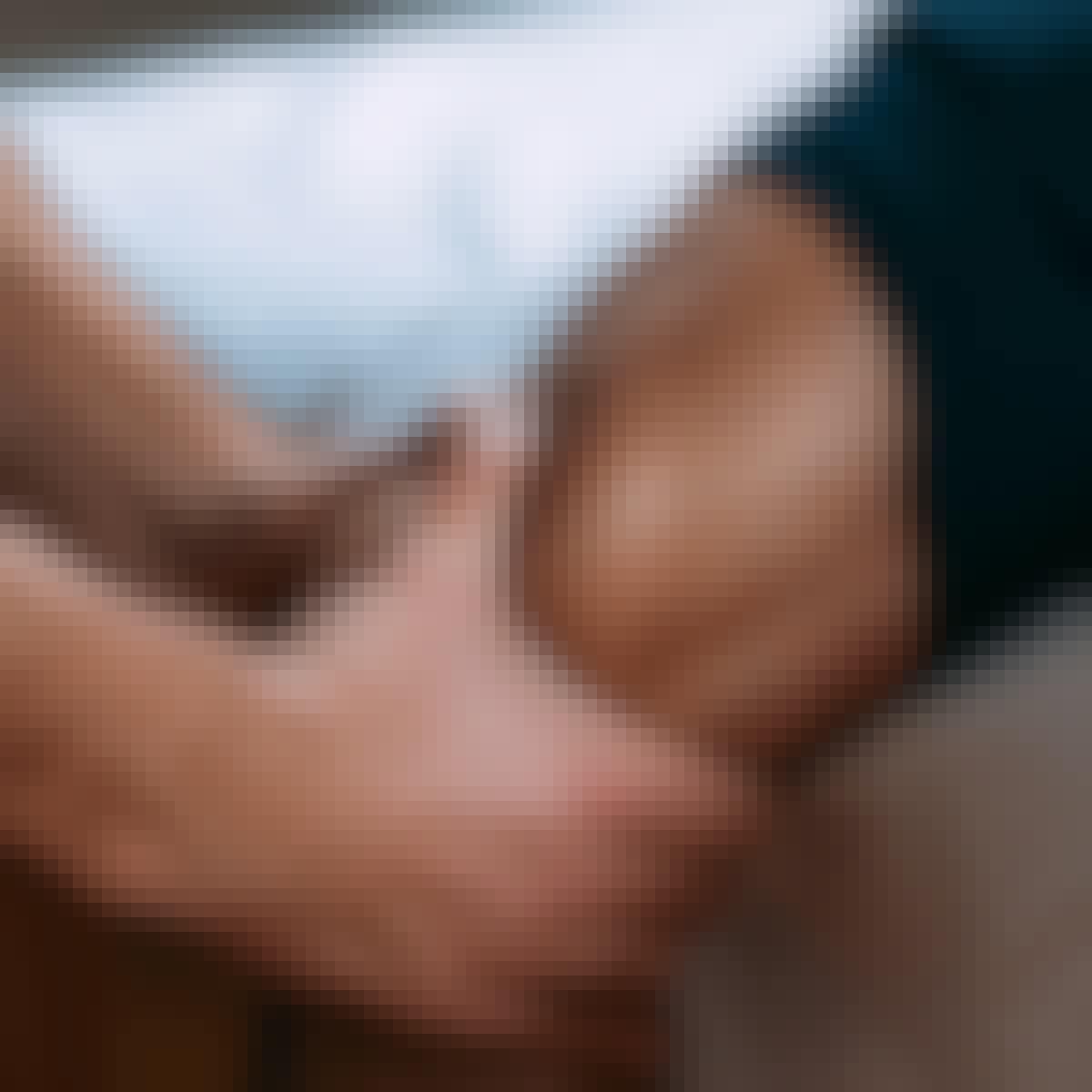 Status: NewNewStatus: Free TrialFree TrialN
Status: NewNewStatus: Free TrialFree TrialNNiel Asher Education
Skills you'll gain: Patient Communication, Injury Prevention, Physical Therapy, Exercise Science, Kinesiology, Human Musculoskeletal System, General Medicine, Family Medicine, Health And Wellness Coaching, Health Care, Pathology, Human Relations Movement
Intermediate · Specialization · 3 - 6 Months
 Status: Free TrialFree TrialN
Status: Free TrialFree TrialNNational Academy of Sports Medicine
Skills you'll gain: Exercise Science, Kinesiology, Sports Medicine, Human Musculoskeletal System, Respiration, Physiology, Neurology, Mechanics, Injury Prevention, Anatomy, Medical Terminology, Nutrition and Diet
4.6·Rating, 4.6 out of 5 stars70 reviewsBeginner · Course · 1 - 3 Months
In summary, here are 10 of our most popular physical therapy courses
- Fundamental Sports related Musculoskeletal Anatomy: The Chinese University of Hong Kong
- Managing Your Health: The Role of Physical Therapy and Exercise: University of Toronto
- Comprehensive Shoulder Mechanics and Treatment Approaches: Niel Asher Education
- Anatomy of the Upper and Lower Extremities : Yale University
- Science of Exercise: University of Colorado Boulder
- Teaching and Assessing Clinical Skills: University of Michigan
- Michigan Sport-Related Concussion Training Certification : University of Michigan
- Upper Body Specialist: Advanced Assessments and Treatments: Niel Asher Education
- Integrative Bodywork Techniques for Practitioners: Niel Asher Education
- Human Anatomy and Medical Terminology Fundamentals: MedCerts
Frequently Asked Questions about Physical Therapy
Physical therapy is a healthcare profession focused on the treatment and rehabilitation of individuals with physical impairments or disabilities. It plays a crucial role in helping patients recover from injuries, manage pain, and improve mobility. By employing various techniques, including exercises, manual therapy, and education, physical therapists empower patients to regain their independence and enhance their quality of life. The importance of physical therapy extends beyond recovery; it also promotes overall wellness and preventive care, making it a vital component of the healthcare system.
A career in physical therapy can lead to various job opportunities. Common roles include physical therapist, physical therapy assistant, and rehabilitation specialist. Physical therapists work directly with patients to develop treatment plans, while assistants support therapists in implementing these plans. Additionally, there are opportunities in specialized areas such as sports therapy, pediatric therapy, and geriatric therapy. Each role contributes to improving patient outcomes and enhancing the overall healthcare experience.
To succeed in physical therapy, you need a blend of technical and interpersonal skills. Key skills include strong communication abilities to effectively interact with patients and their families, critical thinking for developing treatment plans, and empathy to understand patients' challenges. Additionally, knowledge of anatomy, physiology, and rehabilitation techniques is essential. Hands-on skills in manual therapy and exercise prescription are also crucial for delivering effective care.
There are several excellent online courses available for those interested in physical therapy. For instance, Managing Your Health: The Role of Physical Therapy and Exercise offers insights into how physical therapy can enhance health and well-being. Other courses may cover specific techniques or populations, providing a comprehensive understanding of the field. Exploring these options can help you find the right fit for your learning goals.
Yes. You can start learning physical therapy on Coursera for free in two ways:
- Preview the first module of many physical therapy courses at no cost. This includes video lessons, readings, graded assignments, and Coursera Coach (where available).
- Start a 7-day free trial for Specializations or Coursera Plus. This gives you full access to all course content across eligible programs within the timeframe of your trial.
If you want to keep learning, earn a certificate in physical therapy, or unlock full course access after the preview or trial, you can upgrade or apply for financial aid.
Learning physical therapy involves a combination of theoretical knowledge and practical experience. Start by enrolling in online courses that cover the fundamentals of physical therapy, anatomy, and rehabilitation techniques. Engage in hands-on practice through internships or volunteer opportunities in healthcare settings. Additionally, consider joining professional organizations or forums to connect with experienced practitioners and gain insights into the field.
Typical topics covered in physical therapy courses include anatomy and physiology, biomechanics, therapeutic modalities, and rehabilitation techniques. Courses often explore patient assessment, treatment planning, and evidence-based practice. Additionally, specialized topics such as sports rehabilitation, pediatric therapy, and geriatric care may be included, providing a well-rounded education for aspiring physical therapists.
For training and upskilling employees in physical therapy, courses that focus on practical skills and evidence-based practices are essential. Programs that cover topics like patient assessment, treatment techniques, and rehabilitation strategies can enhance workforce capabilities. Consider options that provide hands-on training or case studies to ensure employees can apply their knowledge effectively in real-world settings.










